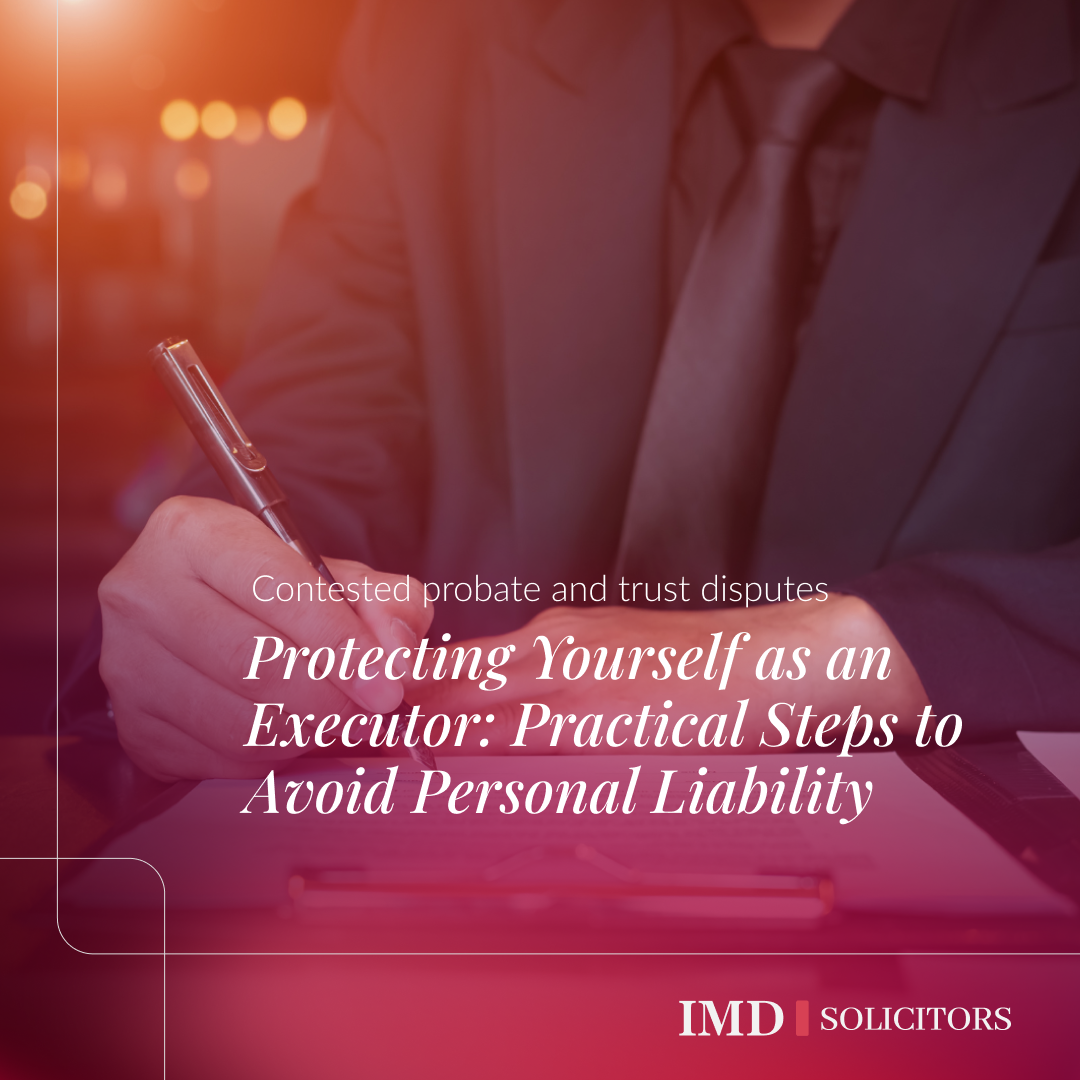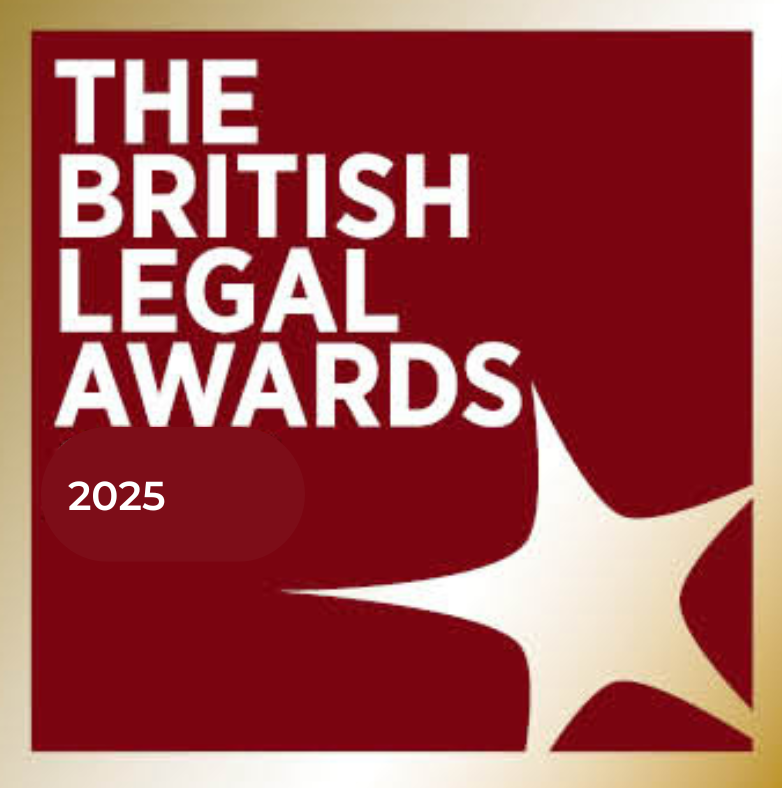Protecting Yourself as an Executor: Practical Steps to Avoid Personal Liability

Speak to a member of our specialist international team of UK family lawyers today on 0330 107 0107.
Being named as an executor or administrator of an estate can feel like an honour, but it also comes with significant legal duties. Executors are personally responsible for managing the estate, paying debts and taxes, and distributing assets correctly. If something goes wrong, the executor can be held personally liable, even if they acted in good faith.
With disputes and claims on estates becoming more common, it is essential to understand both the risks and the protections available.
Why Executors Are Personally Liable
Executors and administrators act in a fiduciary role. This means the law holds them to high standards of care and impartiality. If they pay the wrong person, distribute the estate too soon, or fail to account for tax or creditors, the estate’s beneficiaries or creditors may pursue them personally.
This liability continues until the estate is properly wound up, which can take many months or even years.
Common Traps Executors Fall Into
Some of the most frequent mistakes include:
- Distributing too early, paying beneficiaries before debts and taxes are settled.
- Missing tax deadlines, leading to penalties and interest.
- Overlooking creditors, failing to identify or notify those with valid claims.
- Failing to act impartially, favouring one beneficiary over another, whether deliberately or through misunderstanding.
Even simple errors can cause significant financial and emotional consequences.
Steps Executors Can Take to Protect Themselves
Fortunately, there are several ways executors can reduce their exposure:
1. Statutory protection
Placing statutory notices under section 27 of the Trustee Act 1925 helps protect against unknown creditors.
2. Professional advice
Taking early legal and tax advice ensures the estate is managed correctly from the outset.
3. Insurance and indemnities
Executors may obtain insurance, or seek indemnities from beneficiaries before distributing assets.
4. Court involvement
If disputes arise, the court can provide directions. In serious cases of breakdown, executors may be removed under section 50 of the Administration of Justice Act 1985.
When Disputes Arise
Despite best efforts, disputes sometimes occur, for example, between executors, or between executors and beneficiaries. Courts are willing to intervene if an executor falls short of their duties.
Recent cases, such as Fernandez v Fernandez [2025] EWHC 2373, demonstrate the court’s readiness to enforce high standards of conduct and to consider removal where necessary. Seeking advice at an early stage can often prevent matters from escalating into costly litigation.
Conclusion
Accepting an executorship brings real responsibility. The role is not simply a formality: it carries the risk of personal liability if things go wrong.
With the right precautions, statutory notices, professional advice, insurance, and, where needed, court involvement, executors can protect themselves while ensuring the estate is administered fairly and efficiently.
If you are acting as an executor or administrator and would like clear advice on how to protect yourself, contact us for guidance.
Contact our Contested Probate and Trust Disputes solicitors for clear, practical advice on your options.
This article is for general information only and does not constitute legal or professional advice. Please note that the law may have changed since this article was published.



















